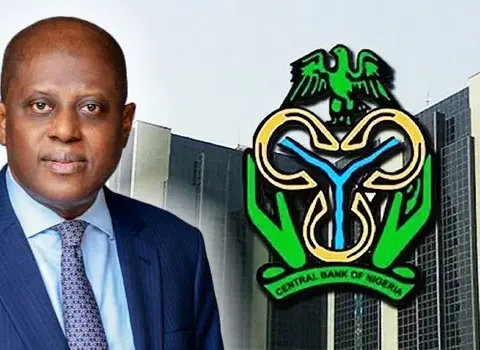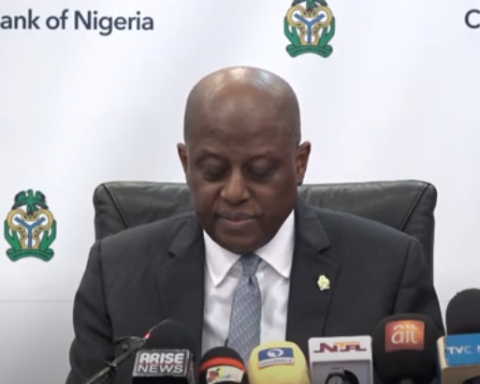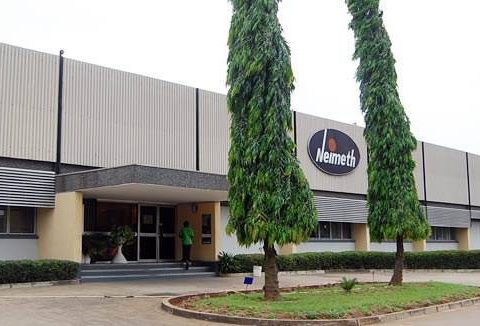The Central Bank of Nigeria (CBN) has emphasised its commitment to financial inclusion for the greater benefit of the economy.
CBN is the Custodian and Project Manager of the National Financial Inclusion Strategy, which was launched in 2012 after a report by Strategy Consultants, Roland Berger, which noted that Nigeria lagged behind some of its peers in Africa in financial inclusion.
Join our WhatsApp ChannelIn the report, Roland Berger noted that 36 per cent of the adult population of 85 million were served by financial services compared with 68 percent in South Africa and 41 percent in Kenya.
But going forward, statistics showed that in 2020, 67 per cent of Nigerians became financially included, and in 2023, it increased to 74 per cent, with 24 per cent being financially excluded.
Financial inclusion is a mass-oriented and mainstream topic that commands international attention and concern.
It is a crucial aspect of economic development that aims to stimulate growth, reduce poverty and improve the overall well-being of citizens.
Financial inclusion is about bringing more people into the financial system and delivering a broad range of formal financial services at affordable costs to sections of disadvantaged and low-income segments of society.
READ ALSO: Financial Inclusion Key To Realising Nigeria’s $1trn Economy Target – Cardoso
The components of financial inclusion are a wide range of innovative financial products and services, including payments, savings, credits, designing financial products according to the needs of target clients, insurance and pension products and services within the reach of all groups. It aims to create a more vibrant and successful economy and improve living standards.
At the 2nd International Financial Inclusion Conference (IFIC) which held in Lagos in November 2024, CBN expressed the commitment to deepen financial inclusion through various creative policy options which includes the introduction of regulatory frameworks that supports digital platforms that enhance access to financial services.
Others include encouraging entrepreneurs, financial literacy initiatives to educate individuals on financial concepts and tools necessary to help them make informed decisions.
CBN initiative on financial literacy aligns with a report by the Organisation For Economic Cooperation and Development( OECD),which urged governments to seek to boost young people’s financial literacy to enable them to better understand key financial concepts and the risks and rewards of financial products.
Other initiatives by CBN to boost financial inclusion include Women Entrepreneurs Finance Code ( We- Ficode) and Women’s Financial Inclusion Dashboard( WFID).
The role of women in driving economic growth and development cannot be overemphasised. Women empowerment leads to greater GDP, reduction in income inequality, poverty reduction, attainment of social justice and improved family health.
CBN also emphasised the role of financial inclusion in driving the growth of Small and Medium Scale Enterprises( SMEs) which are said to contribute 80 percent of employment in Nigeria.
SMEs are businesses which personnel and revenue fall below a certain benchmark but which differ in different countries.
Generally, SMEs are noted as the backbone of any healthy economy because they play a crucial role in economic development, opening new markets, job creation and innovations especially in developing countries.
SMEs possess huge but untapped potential.
Some countries with successful SMEs include USA, Japan, China, South Korea, and Switzerland.
SMEs in Nigeria need greater support to reduce their rate of business failure. In China, the government implemented tax cuts and other essential measures to ease the burden of SMEs.
A World Bank report noted that SMEs represent 90 percent of businesses and more than 50 percent of employment worldwide.
The OECD reported that SMEs represent about 99 percent of all firms and generate 50 percent to 60 percent of value added on average.
CBN recently introduced new minimum capital requirements for banks to ensure that they are better capitalised and for greater loans exposures and risks to SMEs, underserved markets, rural communities and other vulnerable segments.
CBN also noted the need for strong, resilient and stable banks towards achieving the target USD1 trillion economy envisioned by President Bola Tinubu in 2030.
In a recent press briefing, the Director, Corporate Services, CBN, Ms Emem Usoro, who was represented by the Acting Director, Corporate Communications, Mrs Hakama Sidi- Ali, noted among other things, that “building a USD1trillion economy is not an easy task and we should particularly pay significant attention to banks recapitalisation ensure that our banks are strong, resilient and stable enough to carry out financial intermediation and the much needed financing of development projects and programmes.”
According to Ms Usoro, the Nigerian economy was valued currently at approximately USD250 billion and she noted that achieving USD1 trillion economy by 2030 would require concerted efforts by all stakeholders.
CBN has always demonstrated a strong commitment to supporting SMEs through various creative financing options and experts believe that the bank’s commitment to deepen financial inclusion will increase access to finance for SMEs.
Nwobu, a Chartered Stockbroker and Business Journalist wrote via arizenwobu@yahoo.com Tel 08033021230













